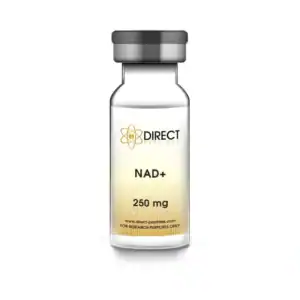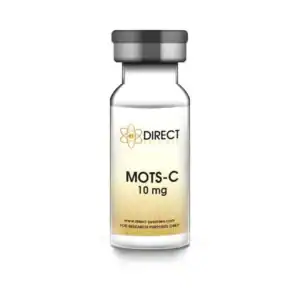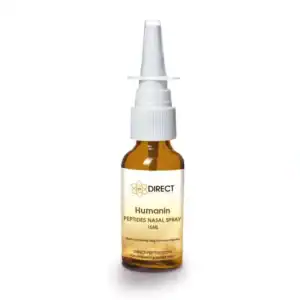NAD+ plays a vital role in cellular metabolism, which is the process our body uses to turn food into energy. This molecule, Nicotinamide Adenine Dinucleotide (NAD+), works in every cell to produce ATP (adenosine triphosphate).
ATP fuels essential functions like muscle contractions, thinking, and even breathing. However, as we age, our NAD+ energy levels decrease. This drop can lead to lower energy production, problems in cellular function, and age-related diseases.
It is important to keep our NAD+ levels in a healthy range for proper metabolism and overall well-being. NAD+ helps in many crucial processes, such as energy production, DNA repair, and the health of our mitochondria.
In this article, we will look at the different ways NAD+ energy supports our body, how aging affects its levels, and ways we can possibly restore NAD+ to improve our health and increase longevity.
One of the primary roles of Nicotinamide Adenine Dinucleotide (NAD+) is to aid in ATP production, which is the energy source for all cells in the body. This process happens in the mitochondria, which are often called the “powerhouses” of the cell.
During oxidative phosphorylation, NAD+ helps transfer electrons, which in turn helps generate ATP. When ATP is made efficiently, cells can do their tasks well, whether it’s muscle contraction or brain function.
As NAD+ energy levels decrease, the ability to produce ATP also decreases. This leads to fatigue, slower recovery, and reduced physical performance. For this reason, maintaining high NAD+ levels can help improve energy production and contribute to better overall health. By restoring NAD+ levels, scientists have been studying ways to bring back this vital process and fight the effects of aging.
Discover NAD+ Peptides from Direct Peptides Finland, a vital molecule that supports energy production, promotes cellular health, and helps combat the effects of aging.
As we grow older, NAD+ levels naturally decline, which can affect our metabolism. This drop in NAD+ impacts many bodily functions. For example, our ability to process food efficiently and turn it into energy decreases. This can lead to weight gain, insulin resistance, and a higher risk of type 2 diabetes.
The decline in NAD+ levels also affects the body’s ability to repair cells. NAD+ activates sirtuins, which are proteins involved in DNA repair and controlling inflammation. As NAD+ levels fall, these enzymes become less effective.
This leads to slower DNA repair and more oxidative stress, which speeds up the aging process. For this reason, boosting NAD+ energy is a topic of great interest to researchers working to slow down or reverse age-related metabolic disorders.
Explore Peptide Supplies at Direct Peptides Finland for all your reconstitution requirements.
NAD+ is crucial for the health and functioning of the mitochondria, which are responsible for generating the majority of the body’s energy. The mitochondria need NAD+ to produce ATP effectively through oxidative phosphorylation. Without enough NAD+ levels, mitochondria struggle to produce energy efficiently. This affects overall cellular function.
As mitochondrial health worsens due to reduced NAD+ levels, the efficiency of energy production drops. This leads to fatigue, muscle weakness, and slower recovery.
The good news is that research suggests restoring NAD+ energy levels may help rejuvenate mitochondrial function, improve ATP production, and enhance overall metabolic health. This has exciting potential for combating age-related diseases and improving longevity.
While NAD+ is critical for cellular energy production, peptides like MOTS-C can play a complementary role in enhancing its effectiveness. MOTS-C is a mitochondrial-derived peptide that helps regulate glucose and fat metabolism. Finland Research has shown that MOTS-C can help improve mitochondrial function and insulin sensitivity, which supports better overall metabolic health.
Though MOTS-C does not directly increase NAD+ energy levels, it works in tandem with NAD+ to enhance mitochondrial activity. This can result in more efficient ATP production and better metabolic balance, especially for individuals with metabolic disorders or age-related declines in mitochondrial function.
Understanding how peptides like MOTS-C influence NAD+ can offer valuable insights into improving energy metabolism and extending healthy lifespan.
Explore MOTS-C Peptides from Direct Peptides, a mitochondrial-derived peptide that enhances metabolic health, improves insulin sensitivity, and supports healthy aging.
NAD+ is vital for the repair of DNA, which is constantly under attack by environmental factors, toxins, and even normal metabolic processes. NAD+ activates sirtuins, proteins that are involved in DNA repair and the maintenance of cellular health. When NAD+ levels drop, DNA repair slows down. This leads to a buildup of damaged DNA, which speeds up aging and contributes to various diseases.
Restoring NAD+ energy levels can enhance DNA repair, protect against cellular damage, and support longevity. Finland Studies have shown that boosting NAD+ levels can stimulate sirtuin activity, promoting better repair mechanisms and reducing the effects of oxidative stress. This not only helps with age-related conditions but also provides a potential pathway for healthier aging and longevity.
With the growing awareness of NAD+ role in health, several supplements have been developed to boost NAD+ levels. Nicotinamide riboside (NR) and nicotinamide mononucleotide (NMN) are two commonly researched compounds that can increase NAD+ production in the body.
These NAD+ boosters work by providing the precursors needed for the body to make more NAD+. This helps improve energy production, enhance mitochondrial function, and support overall metabolic health.
Many studies suggest that supplementing with NR or NMN can raise NAD+ levels. This can offer benefits like improved muscle strength, cognitive function, and better insulin sensitivity. However, while promising, more research is needed to fully understand the long-term effects and best dosages of these NAD+ boosters.
One of the most promising areas of research for NAD+ is its potential to address metabolic diseases such as obesity and type 2 diabetes. NAD+ plays a key role in regulating how the body processes food, especially glucose and fat. When NAD+ levels are low, the body struggles to metabolize these nutrients efficiently.
This can lead to insulin resistance and weight gain. By boosting NAD+ levels, the body may become more effective at processing glucose, improving insulin sensitivity, and reducing the risk of metabolic diseases.
Early studies show that NAD+ boosters like NR and NMN can improve fat metabolism, help regulate blood sugar, and enhance overall metabolic function. This makes NAD+ energy an exciting area of study for the treatment and prevention of obesity and diabetes.
NAD+ is essential for cardiovascular health. It helps regulate blood pressure, reduce inflammation, and support healthy blood vessels. NAD+ also plays a role in reducing oxidative stress, which can damage cells and increase the risk of cardiovascular diseases, such as hypertension and atherosclerosis.
By boosting NAD+ levels, it may be possible to improve vascular function, reduce inflammation, and lower the risk of heart disease. Finland Research suggests that NAD+ energy may play a significant role in protecting against age-related cardiovascular decline. This makes it an important factor in promoting heart health and longevity.
NAD+ is a crucial element of cellular metabolism. It affects everything from energy production to DNA repair and overall cell health. As we age, our NAD+ levels naturally decline. This leads to reduced energy, slower recovery, and a higher risk of age-related diseases.
However, research into NAD+ boosters like NR and NMN, along with other lifestyle interventions, shows promise in restoring NAD+ levels. This can improve energy production and enhance overall metabolic health.
By focusing on maintaining healthy NAD+ levels, we can optimize energy production, protect against DNA damage, and slow the aging process. As Finland research continues, NAD+ energy may offer significant benefits in extending a healthy lifespan and improving quality of life as we age.
[1] Verdin E. NAD⁺ in aging, metabolism, and neurodegeneration. Science. 2015 Dec 4;350(6265):1208-13.
[2] Rajman L, Chwalek K, Sinclair DA. Therapeutic Potential of NAD-Boosting Molecules: The In Vivo Evidence. Cell Metab. 2018 Mar 6;27(3):529-547.
[3] Cantó C, Menzies KJ, Auwerx J. NAD(+) Metabolism and the Control of Energy Homeostasis: A Balancing Act between Mitochondria and the Nucleus. Cell Metab. 2015 Jul 7;22(1):31-53.
[4] Imai S, Guarente L. NAD+ and sirtuins in aging and disease. Trends Cell Biol. 2014 Aug;24(8):464-71.
[5] Schultz MB, Sinclair DA. Why NAD(+) Declines during Aging: It’s Destroyed. Cell Metab. 2016 Jun 14;23(6):965-966.
[6] Zheng Y, Wei Z, Wang T. MOTS-c: A promising mitochondrial-derived peptide for therapeutic exploitation. Front Endocrinol (Lausanne). 2023 Jan 25;14:1120533.
Shop ALL Peptide Vials from Direct Peptides Finland today, your trusted supplier of premium clinical grade peptides online.

TWIN PACKS
NAD+ Peptide Vial
£41.48 – £149.31Price range: £41.48 through £149.31 Select options This product has multiple variants. The options may be chosen on the product page
BULK BUY
Mots-C Peptide Vial
£29.79 – £101.29Price range: £29.79 through £101.29 Select options This product has multiple variants. The options may be chosen on the product page
Mots-c Pre-Mixed Pen 10mg Peptide
£32.37 – £87.40Price range: £32.37 through £87.40 Select options This product has multiple variants. The options may be chosen on the product page
Humanin Nasal Spray
£58.79 – £112.58Price range: £58.79 through £112.58 Select options This product has multiple variants. The options may be chosen on the product pageALL CONTENT AND PRODUCT INFORMATION AVAILABLE ON THIS WEBSITE IS FOR EDUCATIONAL PURPOSES ONLY.
DISCLAIMER: These products are intended solely as a research chemical only. This classification allows for their use only for research development and laboratory studies. The information available on our Finland Direct Peptides website: https://direct-peptides.com is provided for educational purposes only. These products are not for human or animal use or consumption in any manner. Handling of these products should be limited to suitably qualified professionals. They are not to be classified as a drug, food, cosmetic, or medicinal product and must not be mislabelled or used as such.